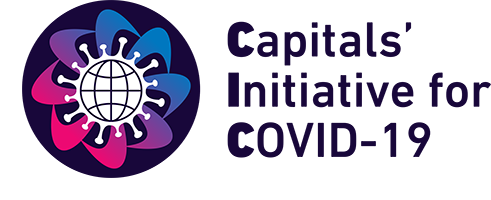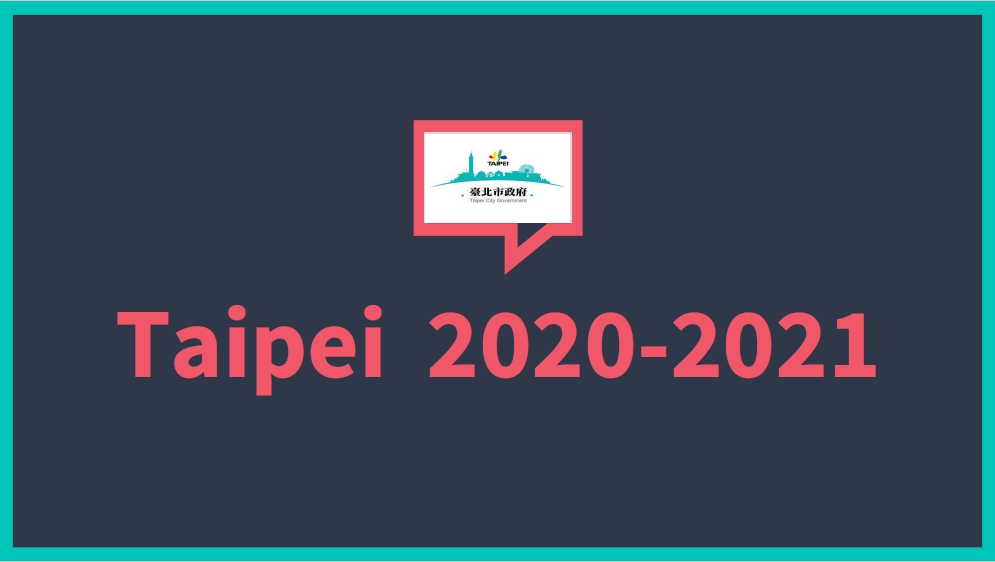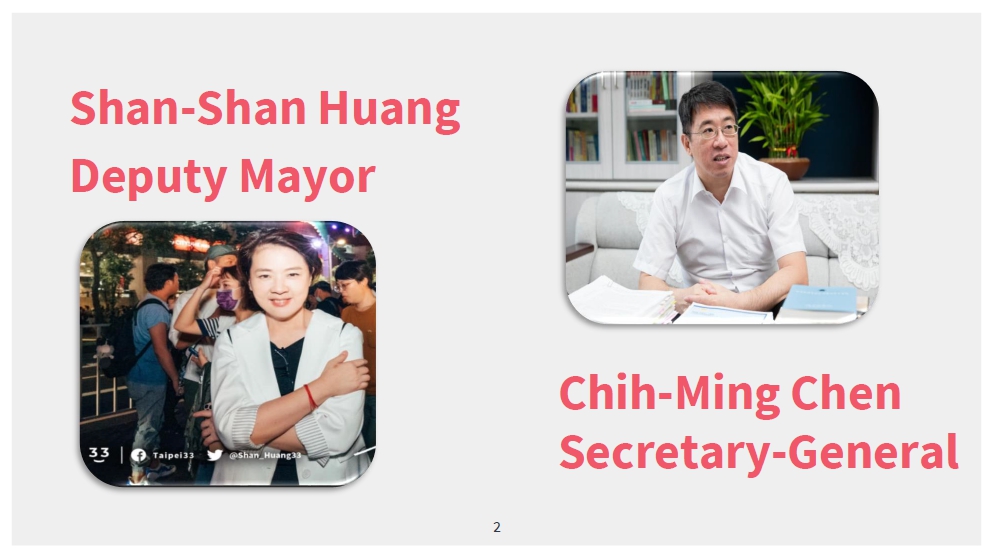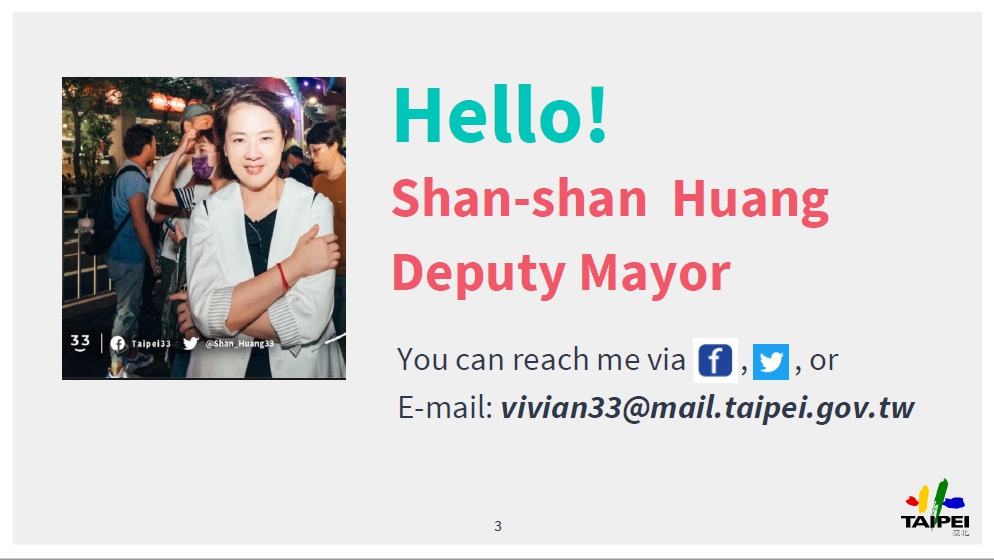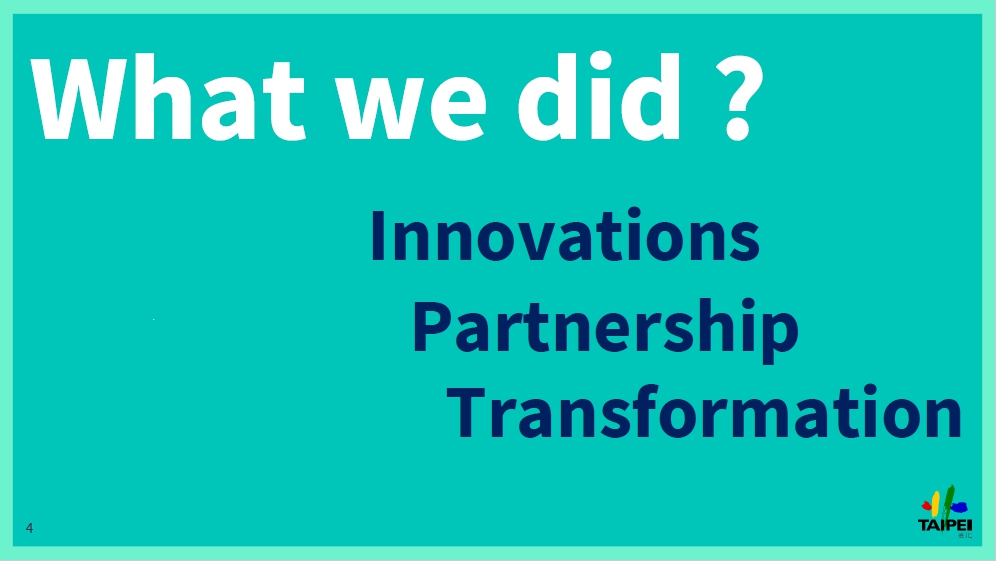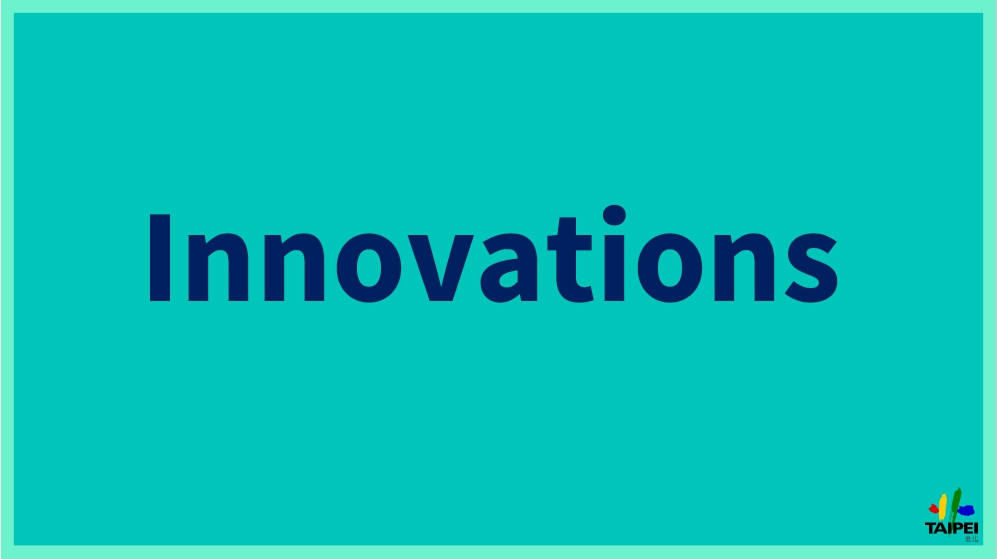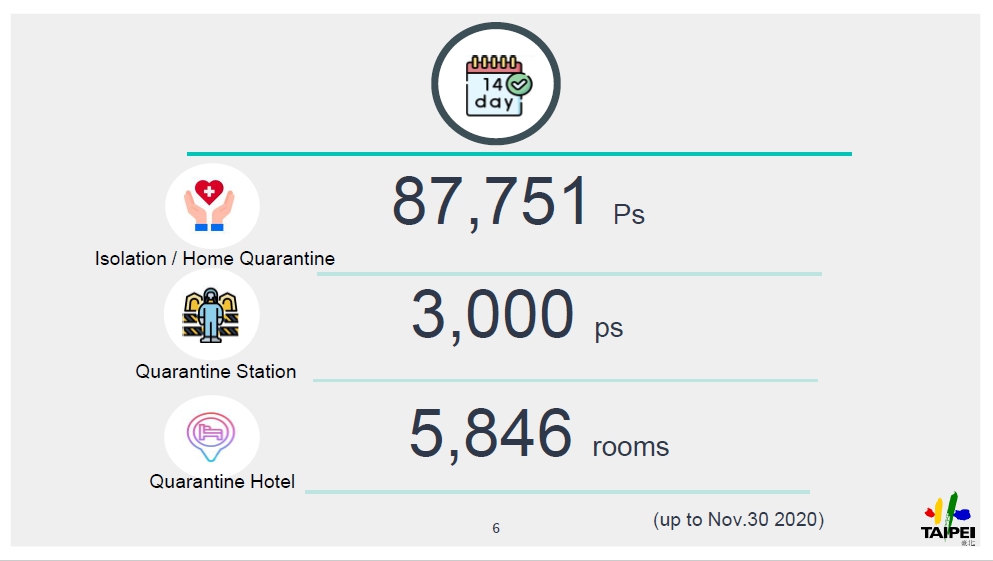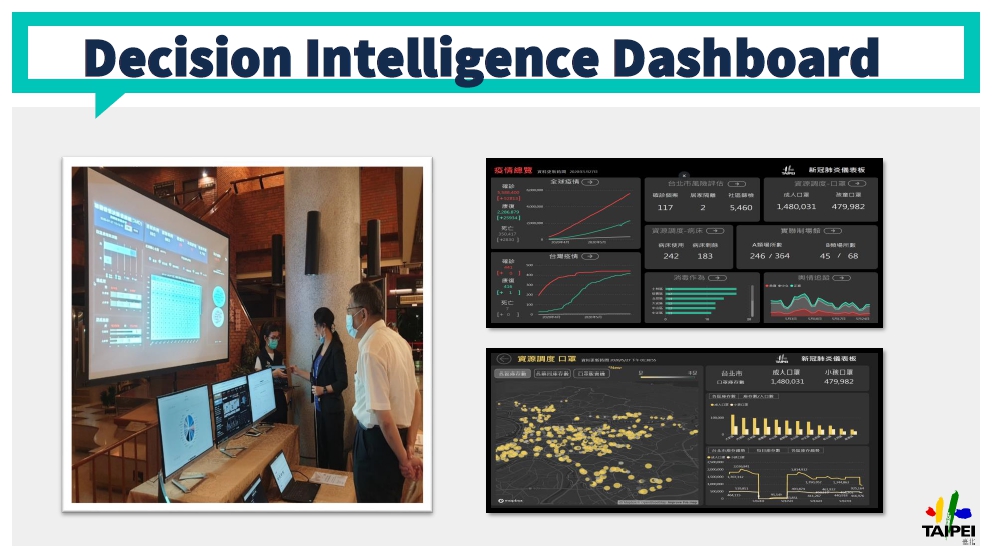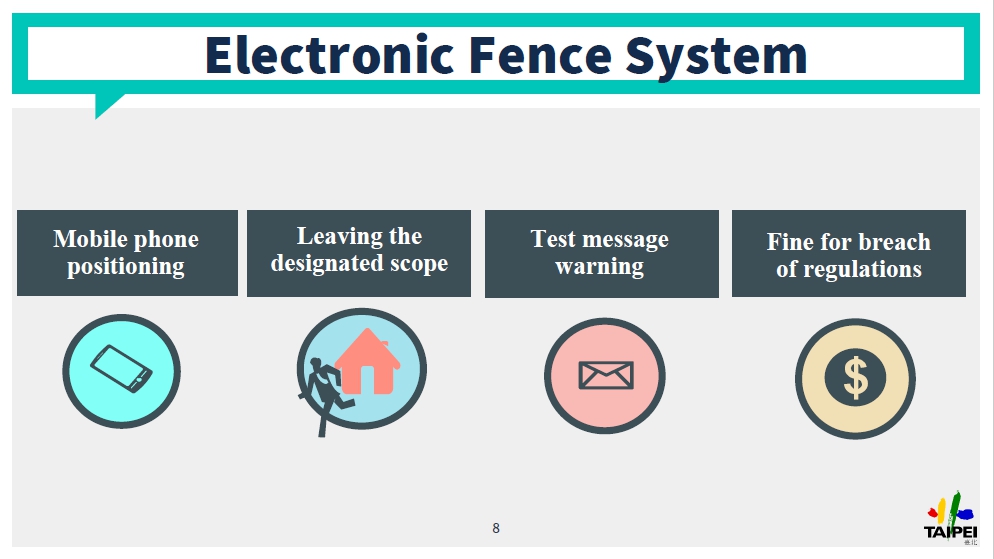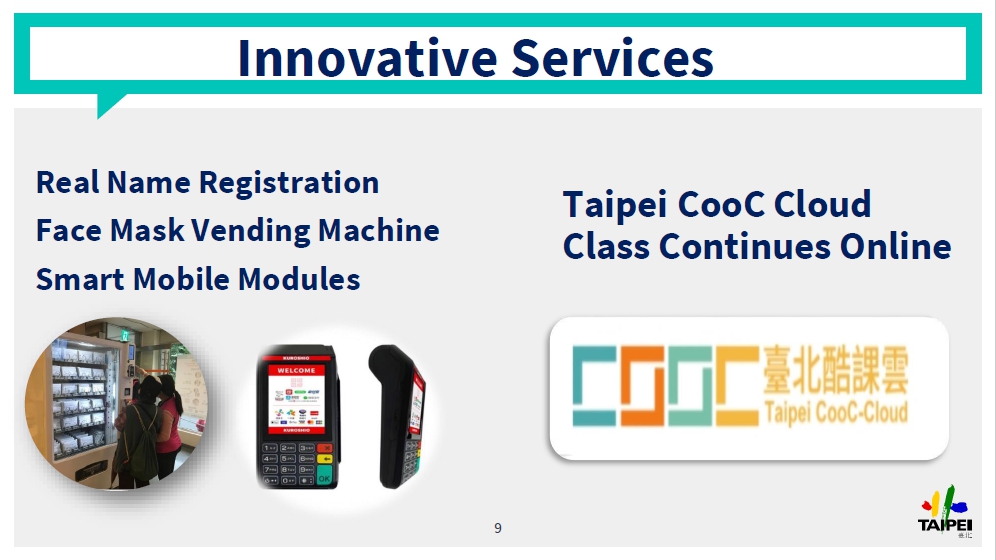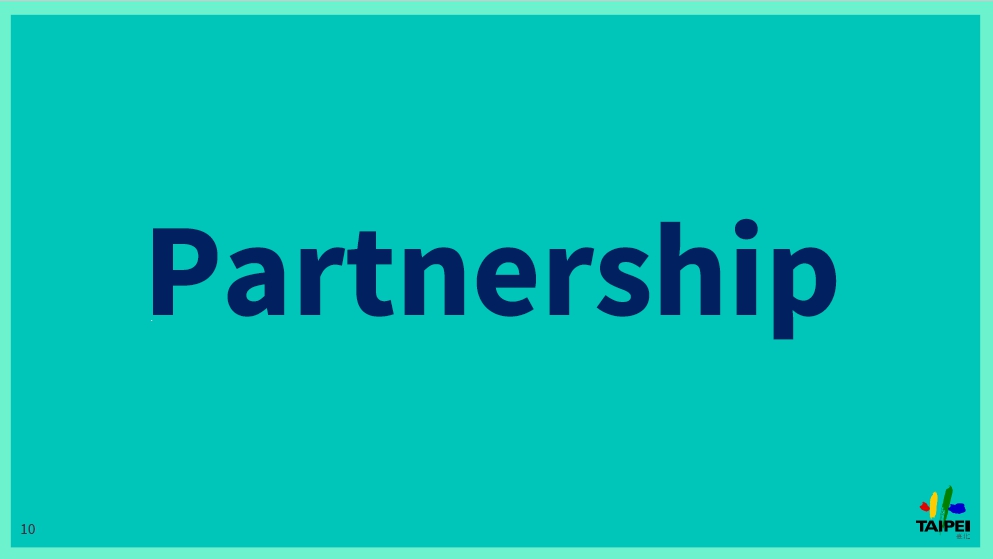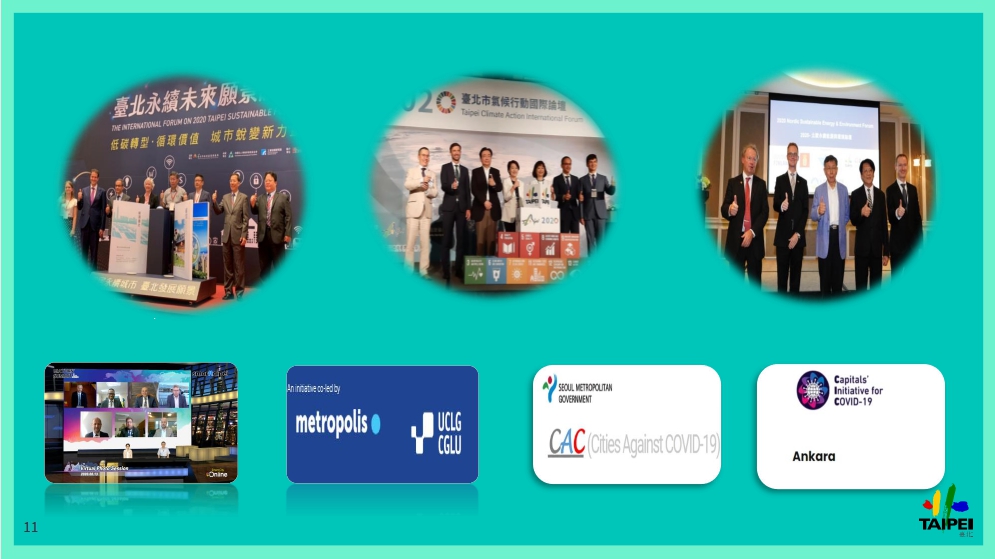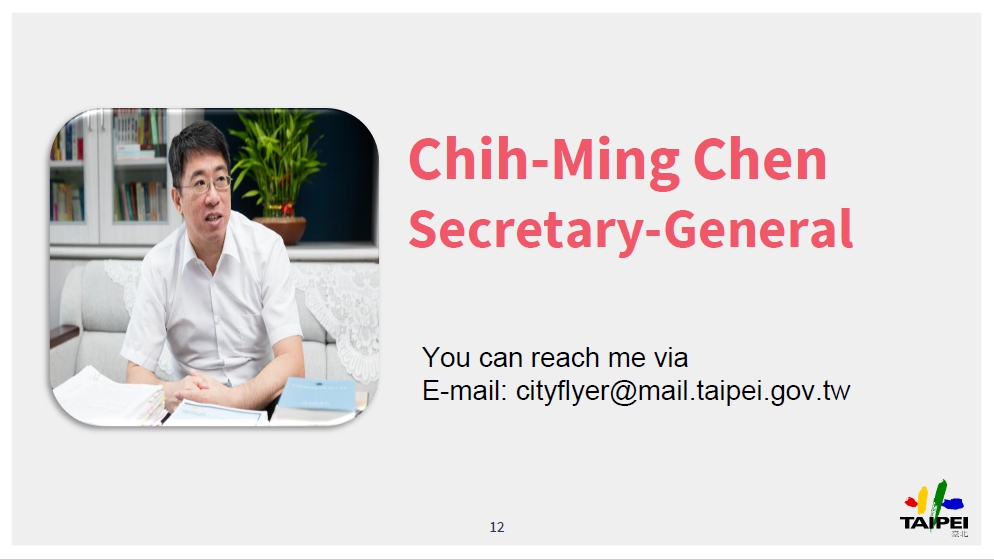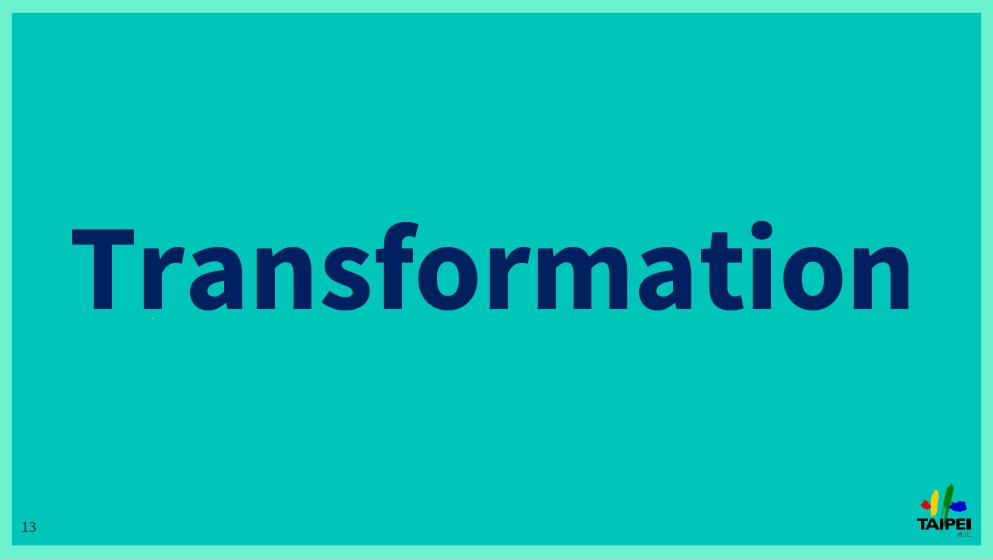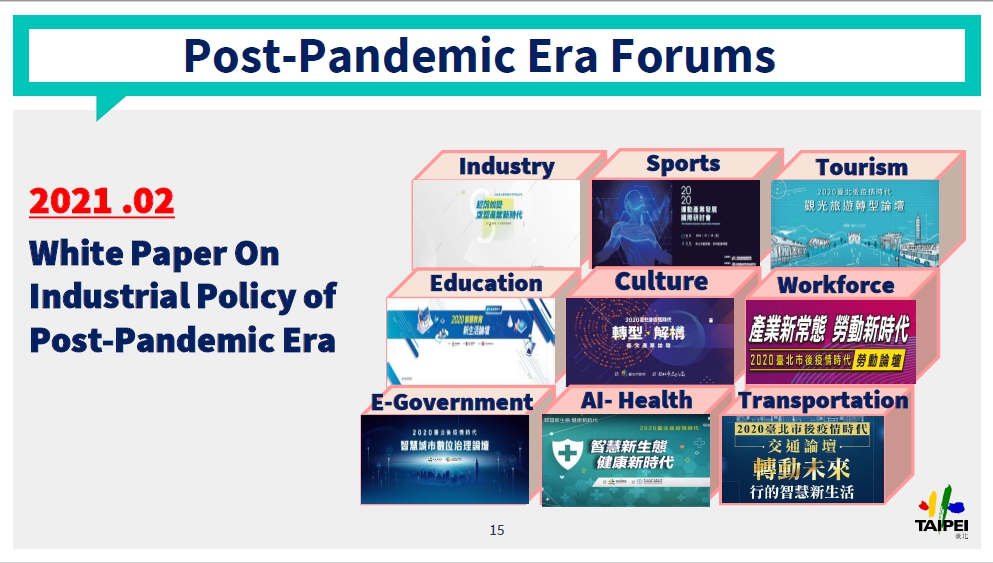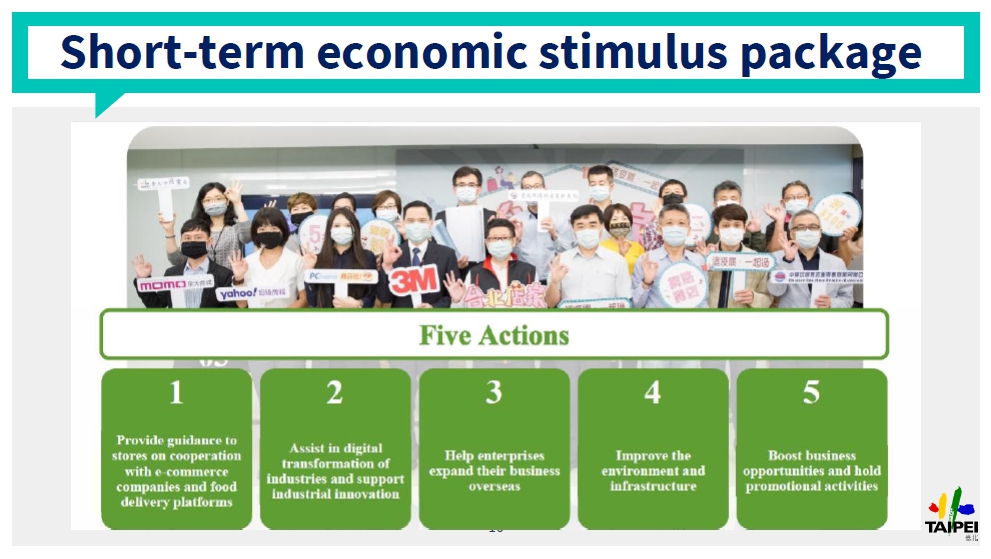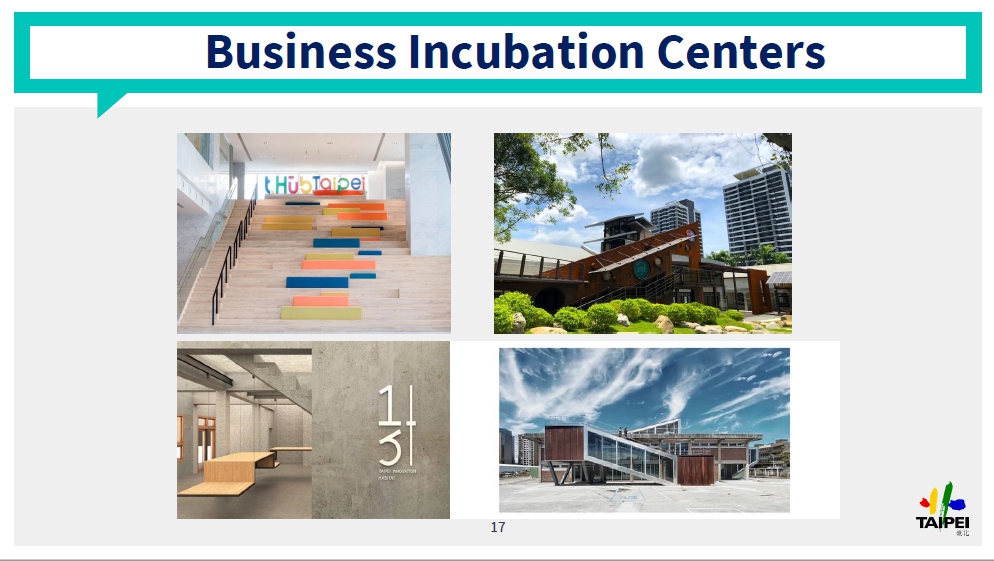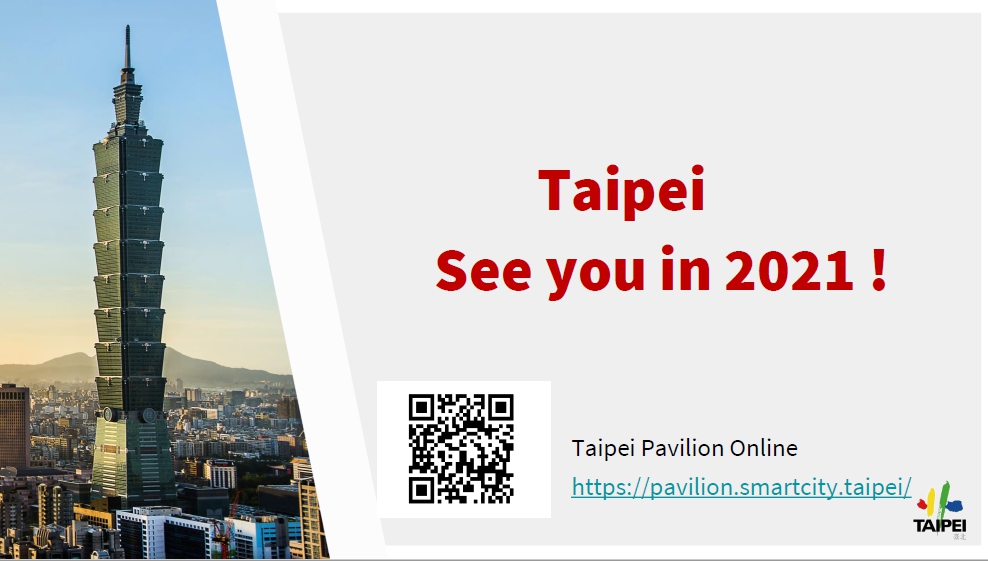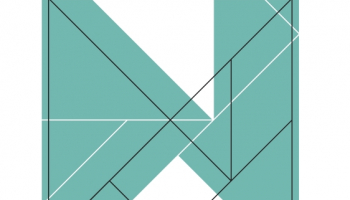- Deputy Mayor Shan-shan Huang – What Taipei has done in 2020:
The COVID-19 is without a doubt the word that is representative of the year 2020. Even at this moment, many countries in the world are still in difficult situations. Regarding Taipei City’s measures and achievements in response to the pandemic, as well as the actions and outlook for Taipei City’s transformation of economy.
So, what did Taipei City do during the pandemic in 2020? We divided into 3 parts – innovations, partnership, and transformation. I will first talk about innovations and partnership.
Apart from cooperating with the central government, a key part of Taipei City’s success in dealing with the pandemic should be the use of smart technology to create a system for tracking and management. Examples include smart testing multi-purpose system, contact tracking system, epidemic prevention system, etc. The goal is to achieve real-time control and management, which is an important aspect of Taipei’s prevention network. Now I will share with you some of our experiences.
Under the cooperation of our teams, up to November 30th of this year, a total of 87,751 people have successfully completed home isolation and home quarantine. Since our city established the first quarantine hotel in Taiwan in February, up to November we have had 87 quarantine hotels, offering 5,846 rooms for home quarantine travelers. Something noteworthy is the “quarantine stations” created by Taipei City, which began in April for those who violate the rules or have difficulties with home quarantine. Their quality standard is comparable to medical facilities, for home quarantine residents with special needs. They have so far helped 3,000 people complete the quarantine.
During the pandemic period, to resolve the issue of fragmented data, we integrate COVID-19 related information with the latest pandemic status for Taipei City through the Big Data Center. Through integrated related data of hospitals, quarantine stations, hotels and communities, we are able to use them as a reference to make decisions on resource allocation, risk assessment, and performance tracking of pandemic prevention efforts. Furthermore, we will expand the experience to future health services for further reference while making the policies.
Another one to mention is the Electronic Fence System. Some of the newly appointed foreign representatives in Taiwan might have already experienced the system during quarantine which uses mobile phone positioning to ensure that the person under home quarantine or isolation stays in the quarantine space to reduce the risk of community infection.
During the pandemic period, Taipei City Government maintains an open and innovative attitude to introduce various innovative services via public-private-partnership. The Real-name Registration Face Mask Vending Machine and the CooC Cloud distance learning system are two best examples.
We worked with startups to roll out the Real Name Registration Face Mask Vending Machine. The device integrates Real Name System verification with diversified e-payment options, which lowers the risk of contact infection. People only need to insert their National Health Insurance cards for verification, then they can obtain the face masks from the machine after paying with EasyCard or other e-payment options.
Right now the pilot project is over. However, the results of this experiment lead to our next step, which is the Smart Mobile Module. It continues our effort to realize services combining cashless exchange, real name verification, and mobility. With the help of mobile devices, city officials can provide services such as supplies deployment and management under the real name registration system, even social welfare-related and long-term care related operations without limitation of location and time. Our government will be a proactive service provider rather than a passive one through this.
Also, in the area of education, we offer all schools in Taipei CooC Cloud to meet the demand of distance learning. From November on, we cooperate with international cities by sharing some of the curriculums, starting from Yokohama, Japan. We hope that there will be more cities joining us in the future.
Besides, within its closed borders, Taipei City has not only continued to develop diligently but also proactively connects with the international society.
Through the Internet, Taipei has been able to share its success in controlling the epidemic with other international cities, websites, and organizations. For example, the epidemic prevention website of Seoul, Korea, the information website of Ankara, and the biggest metropolitan association UCLG/Metropolis are all in contact with us.
Moreover, in previous years, the Taipei Smart City Summit & Expo invited representatives from various cities to visit Taiwan in order to create opportunities for cooperation. The most well-known example is probably that we became sister cities with Prague, Czech Republic as a result. This year we held the event virtually to create an even more complete paradigm for interactions between smart cities, which will in turn accelerate Taipei’s development towards our smart city goal.
Last but not least, Taipei City would like to thank everyone for your involvement this year. Taipei City lived through 2020 without missing a beat. In the future, with everyone’s help, we anticipate to have even more detailed, tangible plans for cooperation. Those plans will help Taipei, through more extensive policies, become a shared, resilient, friendly city of tomorrow.
- Secretary-General Chih-Ming Chen – Taipei in 2021:
The post COVID-19 era is defined by a new form of isolation between people and people, as well as between nation and nation.
This will be reflected on enterprises, individuals, and consumption patterns and create changes in industrial systems by introducing unmanned, automated, and flexible production. Long-distance learning, remote working, and other individual consumption environments will accelerate the development of e-commerce. Online and virtual economies will also gradually be initiated.
As a local government, there are three key items that we must consider for the future. The first is how to make the government smarter. In other words, how we can create a future government with a digital ecosystem. The second is the provision of new talents. How we can support the innovation and transformation process by cultivating better talents. The third is the completion of all things that must be done so that the smart retail economy and zero-touch economy can move to the next stage.
As this epidemic accelerates digital transformation, the Taipei City Government is hoping to take the lead and set examples with public departments. In addition to adding services for citizens, we are working to trigger imagination and develop opportunities in different fields so that these ideas and opportunities can drive industry transformation.
Therefore, Taipei City has held 9 Post-Pandemic Era Forums on different topics from September to November. We invited experts and representatives from various fields to discuss new possibilities for the future. We plan to publish Taipei City’s White Paper for industrial transformation in response to the post-pandemic era in February 2021. We would provide it for your reference then.
Meanwhile, to stimulate the economy, Taipei City Government has taken five short-term actions aiming to promote economic revitalization of the wholesale and retail industries, business districts, night markets, department stores, and restaurants.
The first is to guide the coordinate among businesses, e-commerce vendors, and delivery platforms. Second, we assist with the digital transformation of industries and support business innovation. Third, we help businesses explore overseas opportunities. Fourth, we improve environmental facilities and infrastructure. And finally, we increase business opportunities through holding promotional events.
Besides, as you may know, Taipei City Government has worked hard to build software and hardware for innovative digital services and cross-area integration in order to promote related industries. Currently Taipei has three major business incubation centers. They are Heart of Neihu Technology Park, Nangang Biotechnology Research Park, and Taipei Digi-Creative Center. In addition, in November and December this year, we will gradually open five innovative industry centers, such as t.Hub, POPOP TAIPEI, MISA Academy, and ARK.TPE. In the future, we also hope that teams from other countries will work with us to develop new business opportunities together.
I welcome you all to scan the QR code and visit the website of Taipei Pavilion to look up for more details about Taipei. https://pavilion.smartcity.taipei/
